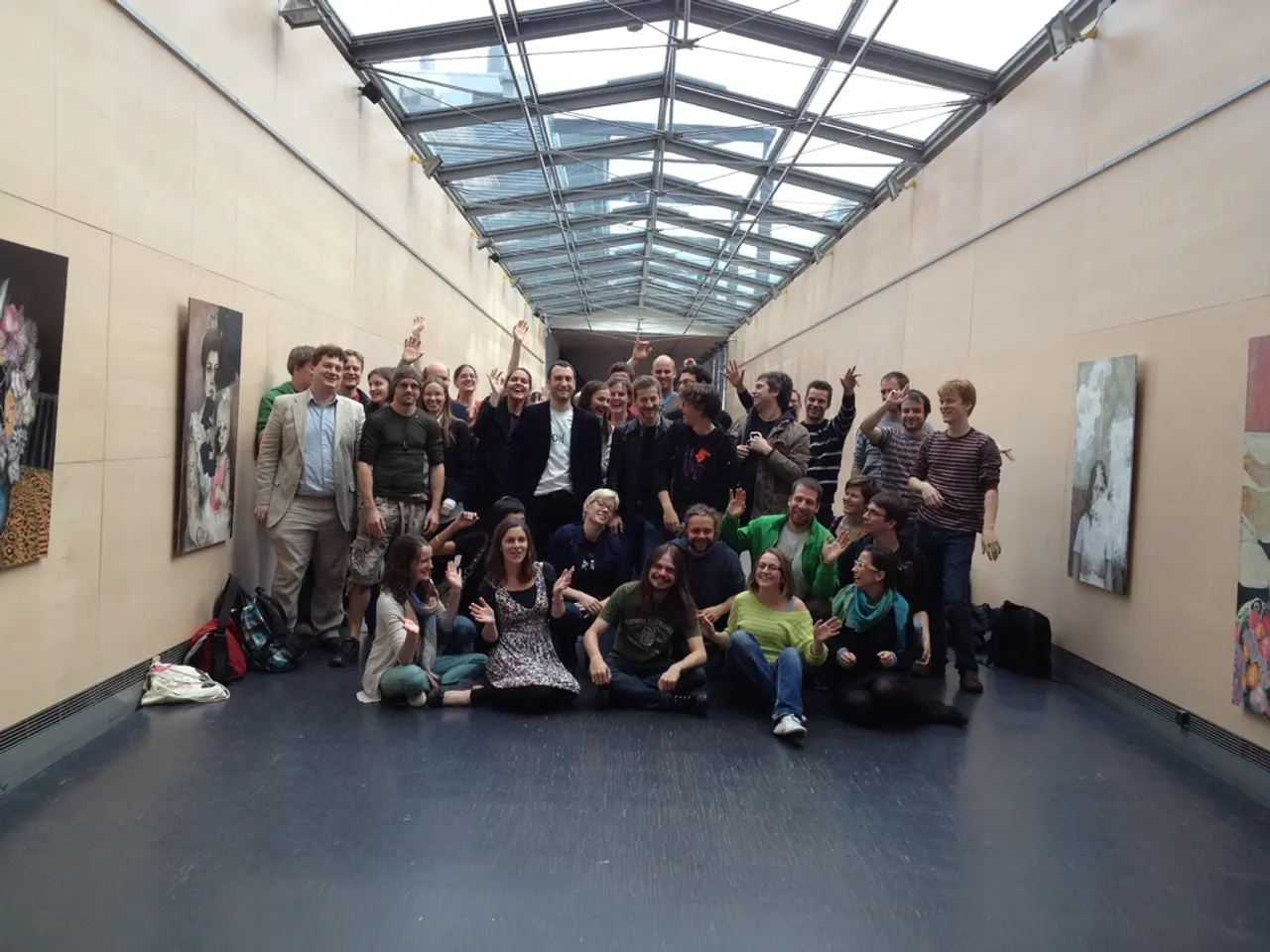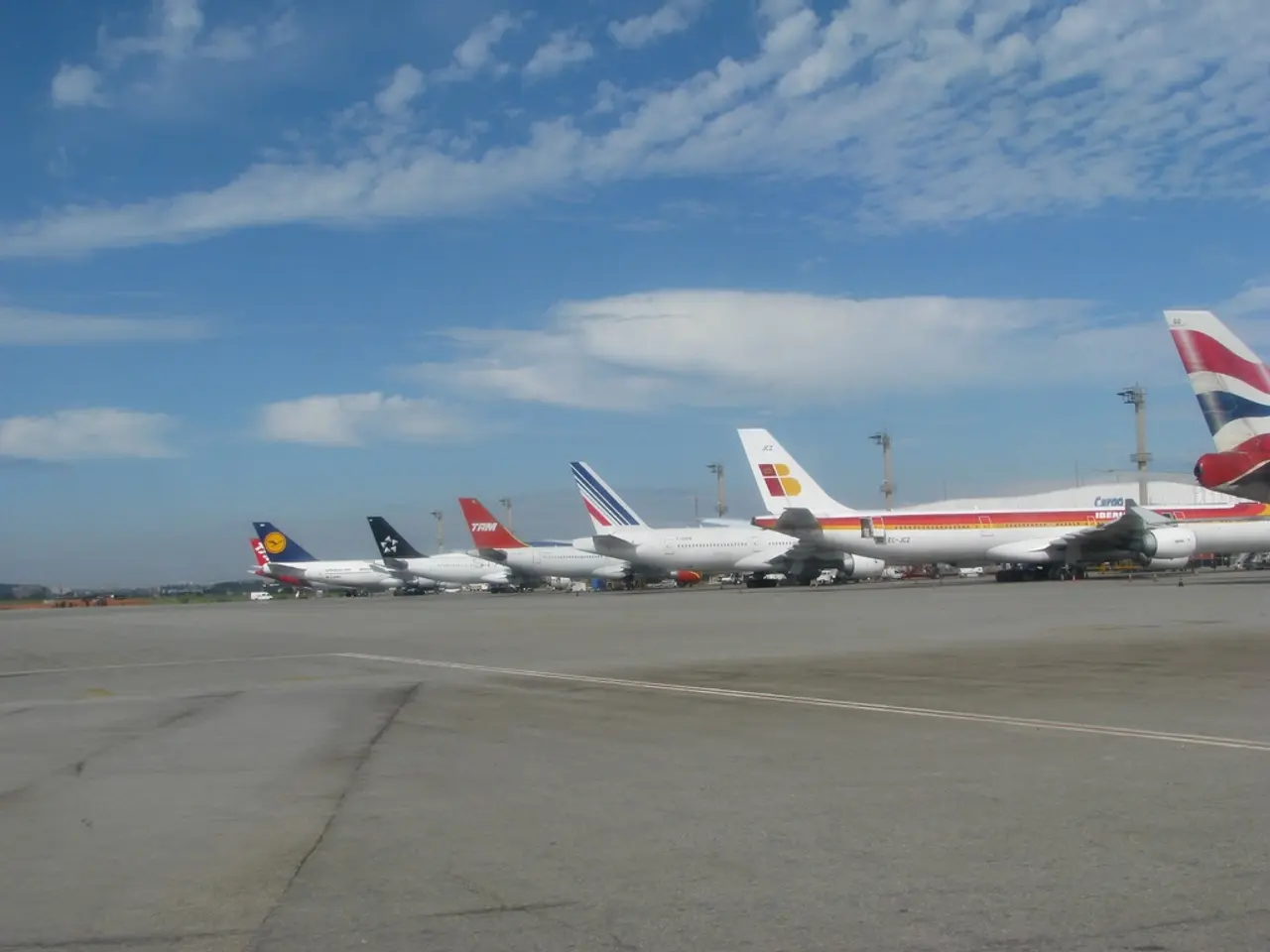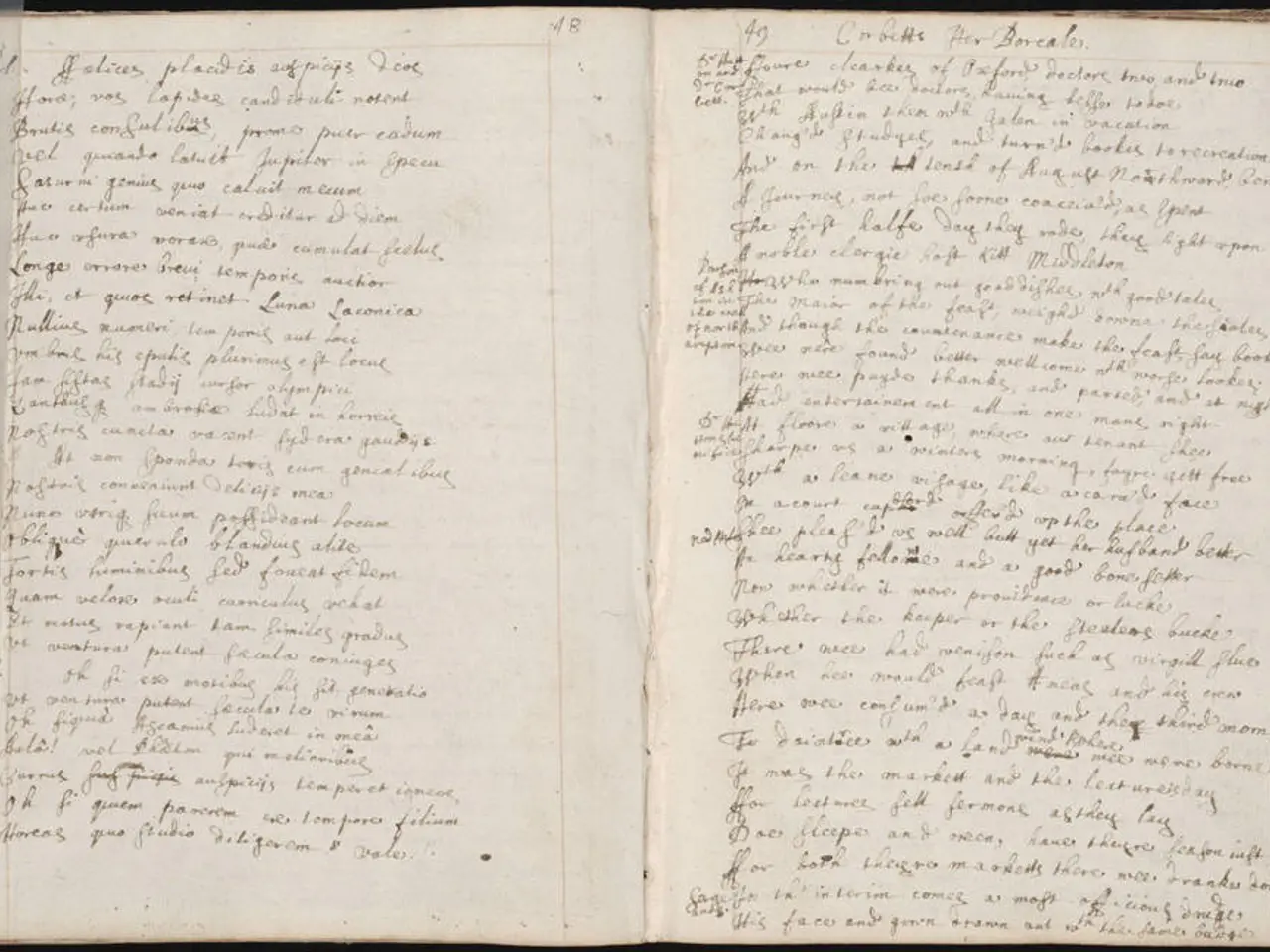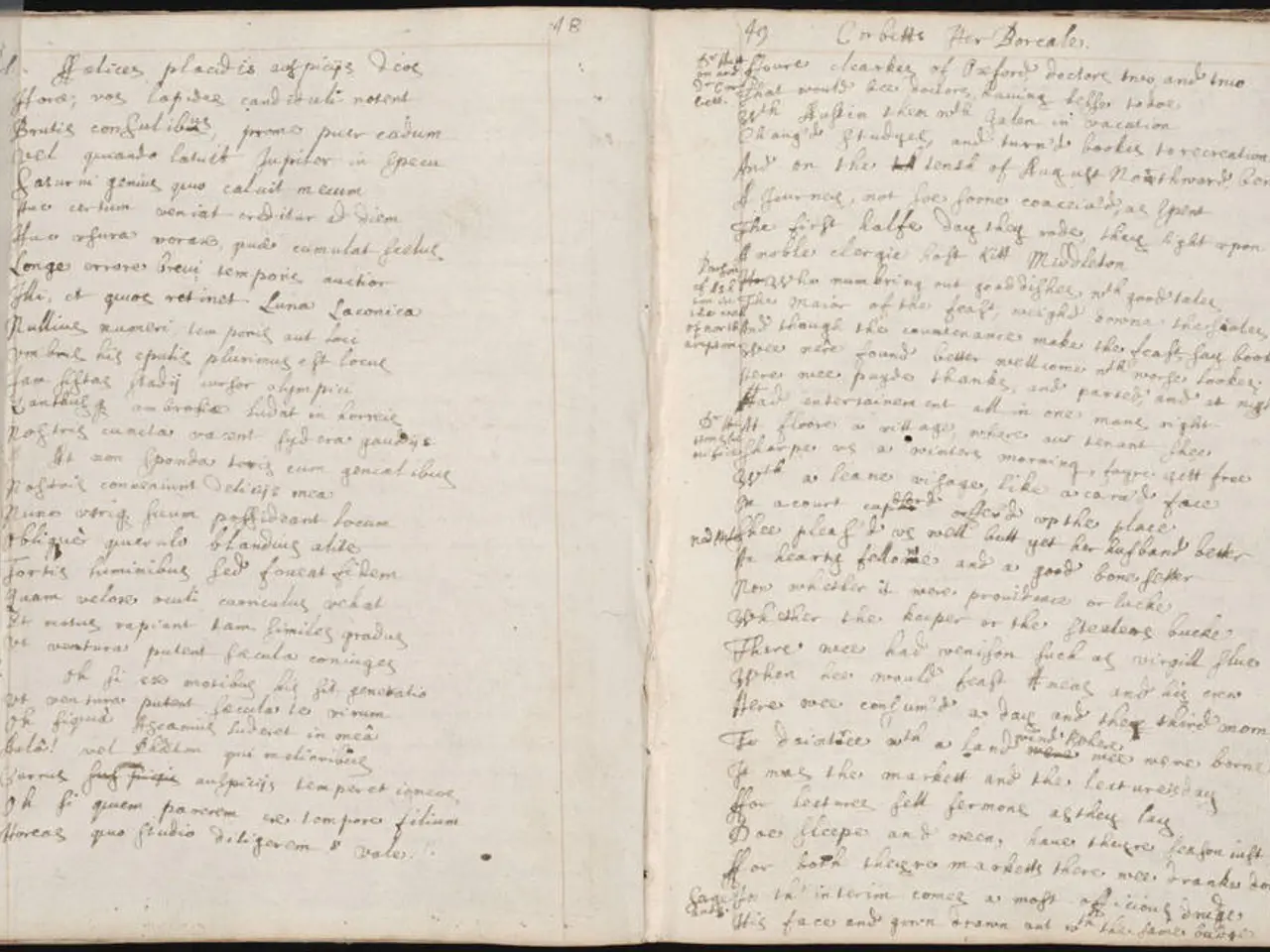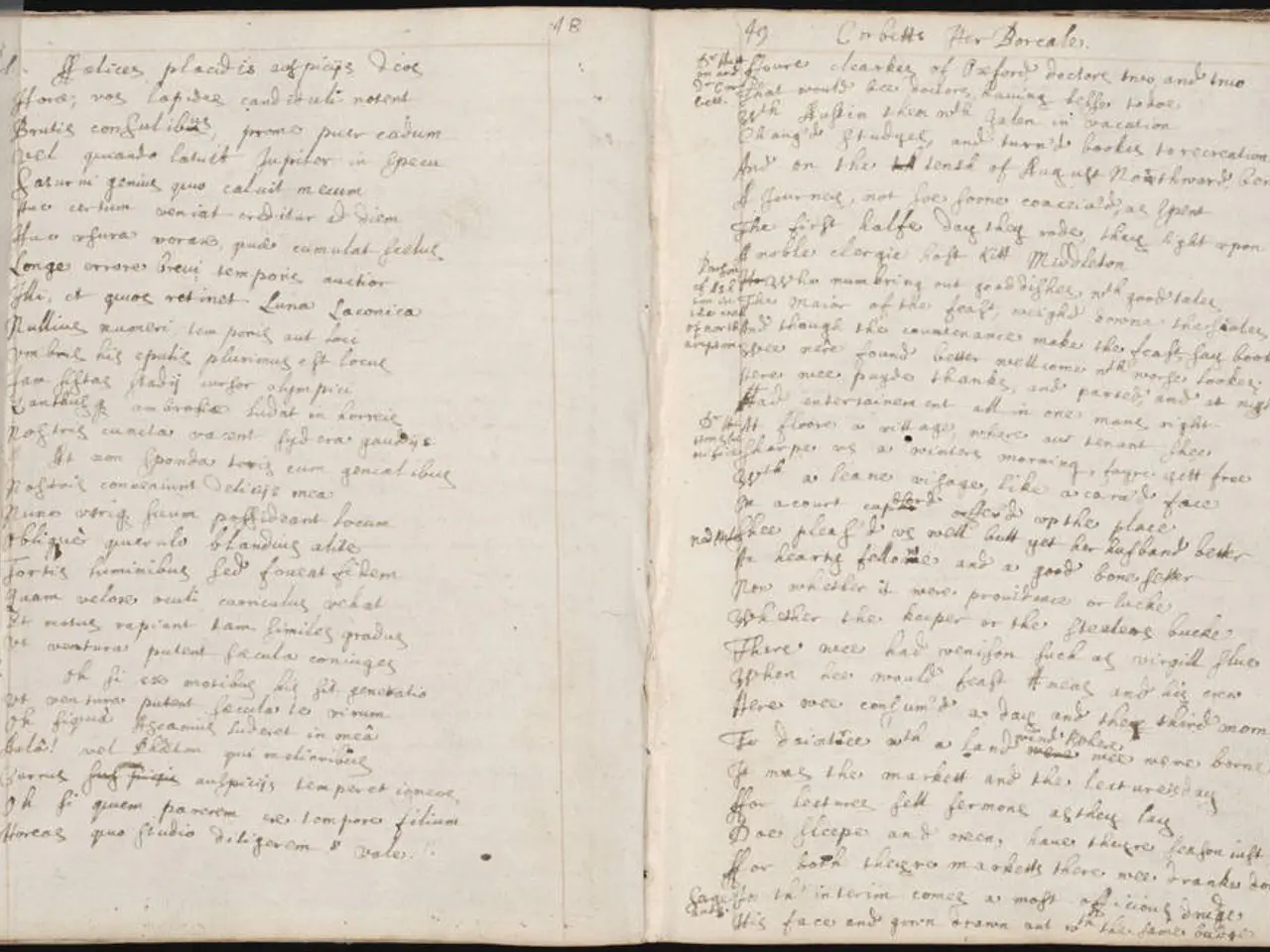Government initiates airborne operations and intensifies diplomatic pressure on Israel
In response to the worsening humanitarian crisis in the Gaza Strip, Germany has announced a humanitarian air bridge in cooperation with Jordan. This initiative, unveiled by Chancellor Friedrich Merz on July 29, 2025, aims to deliver critical food and medical aid immediately, with coordination from Defense Minister Boris Pistorius, who will work jointly with France and the United Kingdom, both prepared to support the operation [1][2][4].
The air bridge arises against the backdrop of Gaza’s dire humanitarian situation due to prolonged blockades and conflict, with large aid convoys only recently allowed limited entry. Chancellor Merz described the airlift as a necessary but modest humanitarian contribution, calling for Israel to improve access and address the catastrophic conditions comprehensively [2][4].
Criticism of this initiative has been voiced, particularly from Israeli officials. Israel’s ambassador to Germany, Ron Prosor, highlighted the complex security challenges in Gaza, noting concerns that aid could be exploited by Hamas militants, who have reportedly militarized civilian infrastructure. The initiative has been accused by some commentators of potentially aiding terrorist groups by bypassing Israeli control mechanisms that monitor aid distribution [3]. Nonetheless, Germany stresses the air bridge as a humanitarian imperative and signals potential measures to pressure Israel to ease the crisis, including considering sanctions [1][4].
Coordination with France and Britain is an integral part of the plan, with the German government indicating ongoing diplomatic engagement. Foreign Minister Johann Wadeful’s upcoming regional visit, likely accompanied by French and British counterparts, is expected to further shape follow-up actions and coordination efforts [1].
The EU Commission has recommended that member states partially suspend Israel's participation in the Horizon Europe research funding program due to the catastrophic humanitarian situation in the Gaza Strip. The EU Commission stated that while Israel has announced a daily humanitarian pause in the fighting in the Gaza Strip and has fulfilled some of its commitments under the joint agreement on humanitarian aid and access, the situation remains serious [5].
The German Armed Forces may participate in the air bridge, but the exact number of aircraft has not been determined yet. International aid workers, such as Jean Guy Vataux, emergency coordinator for Médecins Sans Frontières in the Gaza Strip, have criticized air drops as inefficient, pointing out that they amount to far less than 20 tons of aid that could be transported without complications with a single truck [6].
The air bridge reflects Germany’s humanitarian response amid geopolitical sensitivity and ongoing conflict, balancing aid delivery with complex security concerns and international diplomatic coordination [1][2][3][4]. Jordan's King Abdullah II is scheduled to visit Berlin on Tuesday, where further details about the air bridge may be announced. Meanwhile, the Federal Security Council meets in a similar composition to the Security Cabinet, but its deliberations are strictly confidential. The Chancellor did not specify what measures against Israel are being considered beyond the air bridge and the potential suspension of the EU Association Agreement [1][7].
| Aspect | Details | |----------------------|---------------------------------------------------------------------------------------------| | Initiators | Germany (Chancellor Friedrich Merz), in cooperation with Jordan | | Supporting partners | France and United Kingdom (Britain) | | Purpose | Humanitarian air bridge to deliver food and medical supplies to Gaza | | Timing | Immediate implementation following July 29, 2025 announcement | | Coordination | Led by German Defense Minister Boris Pistorius, with France and UK | | Criticism | Concern about aid potentially falling into terrorist hands; criticism from Israel’s envoy | | German stance | Calls for improved humanitarian access from Israel; reserves right to pressure Israel, including sanctions | | Next steps | Await outcomes of planned regional diplomatic visit; possible EU proposals and arms export decisions | | EU Commission | Recommends partial suspension of Israel's participation in the Horizon Europe research funding program | | Security Council | Meets in a similar composition to the Security Cabinet, but its deliberations are strictly confidential |
- The ongoing conflict and delicate politics in the Gaza Strip have prompted a renewed focus on policy-and-legislation, as the EU Commission has suggested partial suspension of Israel's participation in the Horizon Europe research funding program due to the worsening humanitarian crisis.
- As Germany and its allies, France and the United Kingdom, coordinate their humanitarian air bridge initiative to alleviate the crisis in Gaza, they face criticism over potential aid being exploited by terrorist groups and managed past Israel's control mechanisms, highlighting the complex war-and-conflicts and general-news challenges surrounding the mission.
